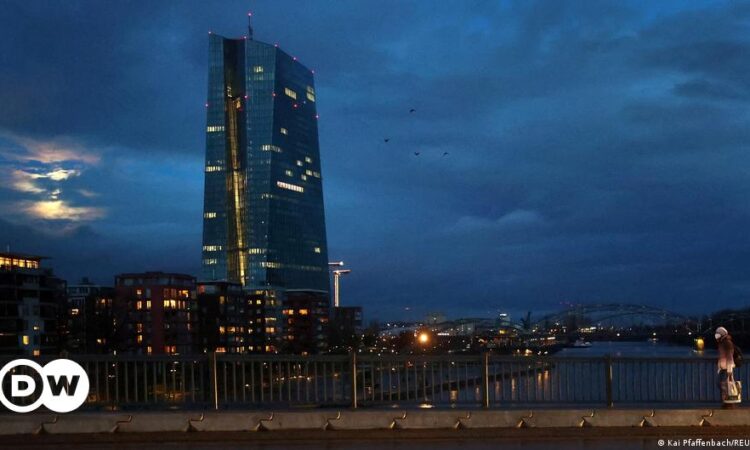
German Chancellor Olaf Scholz said during an EU summit on Friday said that Europe’s banking system is “stable.”
The leaders of the eurozone countries were meeting the head of the European Central Bank (ECB), Christine Lagarde, to discuss the potential fallout of several major banks collapsing in the US and Switzerland.
Inflation, which rose to troubling highs following high government spending during the coronavirus pandemic as well as the Russian invasion of Ukraine, was high on the agenda.
The ECB president was expected to say that banks in the eurozone — which includes 20 EU countries sharing the euro currency — are safe. She is also expected to face questions over the ECB’s interest rate hikes, introduced to curb soaring inflation.
What did Scholz say?
Asked about the situation of the financial markets, Scholz said that the EU had been making the right decisions for years by imposing clear rules.
“It paid off that we had strict rules and regulations in the past years, the banking system is stable in Europe,” he said.
Scholz said that it was the joint task of the bloc’s member states to fight inflation.
The chancellor also said there was “no reason to be concerned” over Deutsche Bank, Germany’s largest lender.
“Deutsche Bank has modernized and organized the way it works. It’s a very profitable bank. There is no reason to be concerned,” he said.
Scholz’s remarks came as shares of Deutsche Bank fell as much as 14% in Frankfurt on Friday.
What did other European officials say during the summit?
ECB chief Lagardetold EU leaders that the eurozone’s banking system is “resilient.”
“The euro area banking sector is resilient because it has strong capital and liquidity positions,” an official quoted Lagarde as saying, according to the Agence France-Presse news agency.
Eurogroup chief and Irish Finance Minister Paschal Donohoe said that he had “trust in the liquidity and resilience the banking system has built.”
“Thanks to the political decisions we have made we have the necessary reserves to guarantee the stability of our banking system,” he said.
He urged member states take steps toward establishing a banking union. “Now we need to put in practice what we have decided on.”
“We see no risks at the moment,” Belgian Prime Minister Alexander de Croo said. He said that this was a result of the “very strict rules” the EU had put in place following the banking crisis in 2008 and 2009.
French President Emmanuel Macron said that Europe’s banks had strong foundations and blamed “speculators” for the recent drop in the value of banks on stock exchanges.
Why are eurozone leaders worried?
Concern over the collapse of Silicon Valley Bank and Signature Bank earlier in the month was only made worse when the impact spread across the Atlantic, imperiling 167-year-old Swiss bank Credit Suisse. The bank had to be rescued with a buyout from rival UBS.
Turmoil in the banking sector comes after years of cheap money have been restricted by rising interest rates in the EU, as well as in the US.
Russia’s full-scale invasion of Ukraine and the subsequent cutting off of gas supplies to Europe sent energy prices soaring, hitting households and industries across the EU.
Although inflation has begun to slowly come under control, and the bloc has avoided a technical recession, there are fears that a banking crisis could trigger a larger recession like the one seen after the banking crash of 2008.
ab,sdi/rc,nm (dpa, Reuters)





